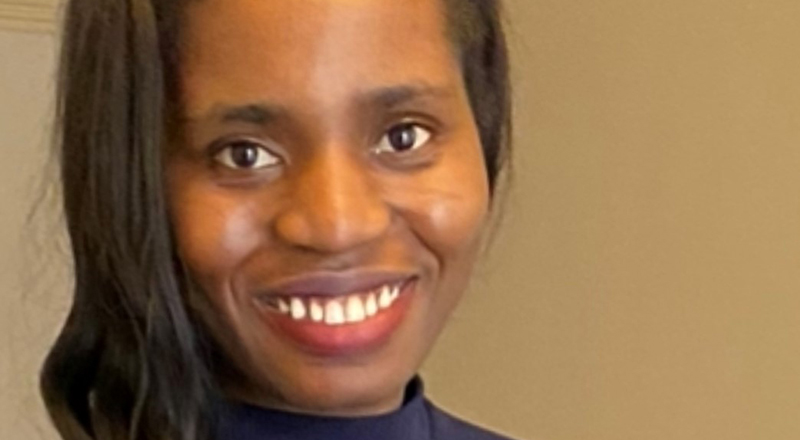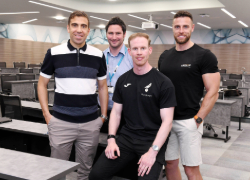Academic researcher shares insight into tackling international terrorism
The vital role communities can play in the reintegration of repentant combatants as part of work to tackle terrorism in Nigeria has been examined by a Teesside University academic.

Dr Tarela Ike, from the University’s School of Social Sciences, Humanities & Law, has been looking at the community perspectives of Boko Haram terrorism and the Nigerian government’s counter-terrorism strategies.
Working with criminology colleagues Professor Georgios Antonopoulos and Dr Danny Singh, Dr Ike has examined the pivotal role of communities in the creation and design of programmes to reintegrate repentant combatants.
Dr Ike said: “The advent of Boko Haram terrorism and its wanton destruction of lives and properties has led to untold hardship, especially in the country’s north-eastern region.
“Reintegration of repentant terrorist combatants is a burning issue for residents of the affected region as Boko Haram has caused the displacement of millions of people across Nigeria and neighbouring countries.”
Dr Ike added: “Changes in communal perceptions are important. How the repentant combatants are perceived may shape community attitudes towards them and encourage acceptance of their reintegration into post-conflict societies.
“More needs to be done to build community trust and confidence about the genuine repentance of former combatants by involving communities in the design of the reintegration programme.”
Dr Ike said: “Those we spoke to had little faith in the ability of former Boko Haram combatants to genuinely reform or repent from terrorist acts. There was also distrust of the de-radicalisation process, in part due to a perceived inability of the programme to successfully change and reintegrate former combatants of Boko Haram.”
More needs to be done to build community trust and confidence
Dr Ike said there were perceptions that societal structure and ‘poor parenting’ could lead some individuals to be more receptive to Boko Haram recruitment.
“Improving these perceptions might potentially reduce the likelihood of some being recruited into terrorism. Reintegration plays an important role in ensuring that those that have successfully undergone de-radicalisation and reintegration programmes do not re-offend.
“To achieve successful reintegration, the view of the community and how they perceive those to be reintegrated is vital. It could help design reintegration programmes that are reflective of the community social identity.”
Dr Ike recently shared her expertise on tackling terrorism in Nigeria at an international conference in Brazil. She was among criminology academics from the University’s School of Social Sciences, Humanities & Law, who were invited to present at the First International Seminar of Editors and Researchers of the Brazilian Ministry of Justice and Public Security.
Research themes presented at the international event included violence and crime, governance and public security and safety.
 Teesside University awards Honorary Doctorates to industry
...
Teesside University awards Honorary Doctorates to industry
... Alumni support elite football event
Alumni support elite football event Girls explore digital careers at state-of-the-art new
...
Girls explore digital careers at state-of-the-art new
...